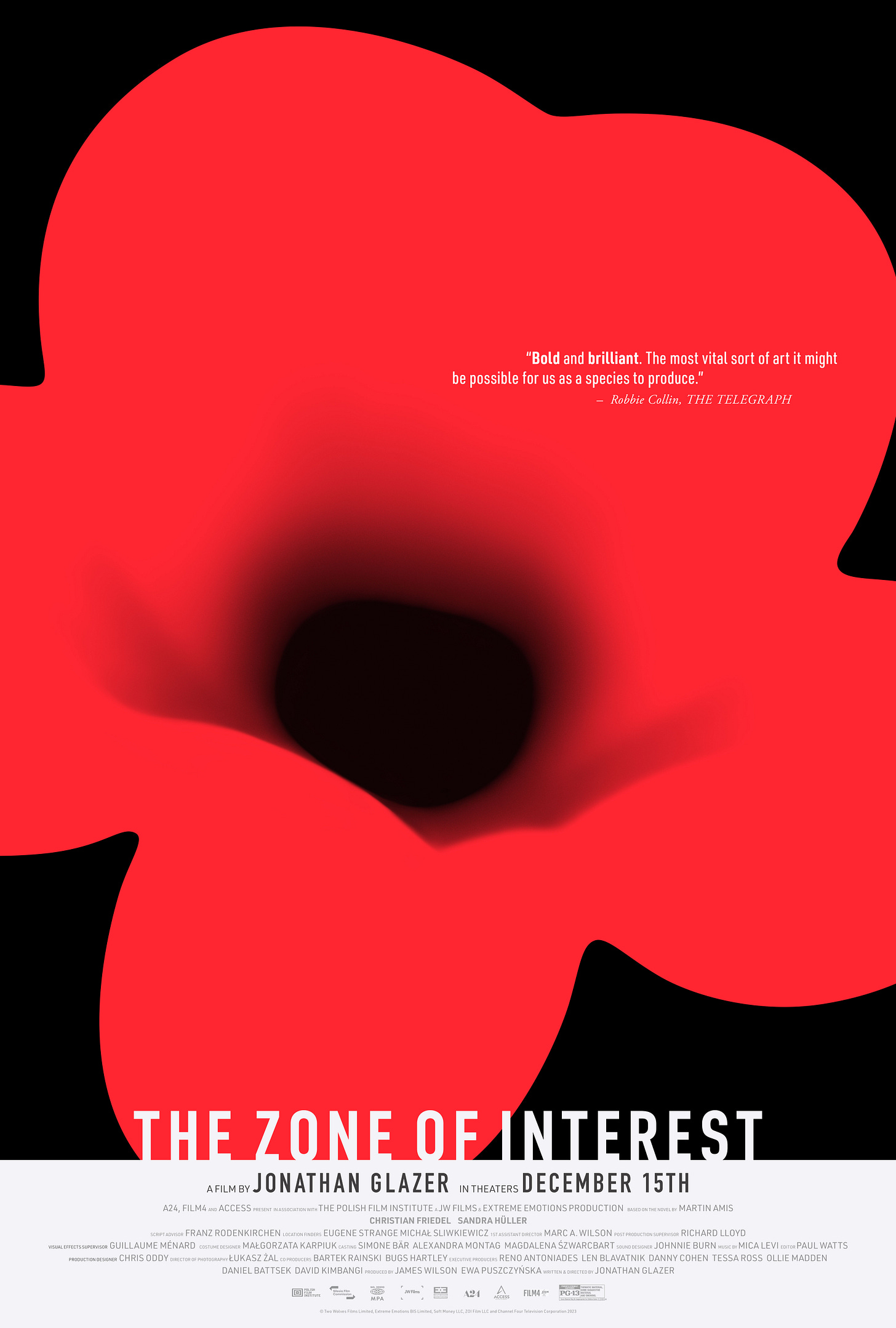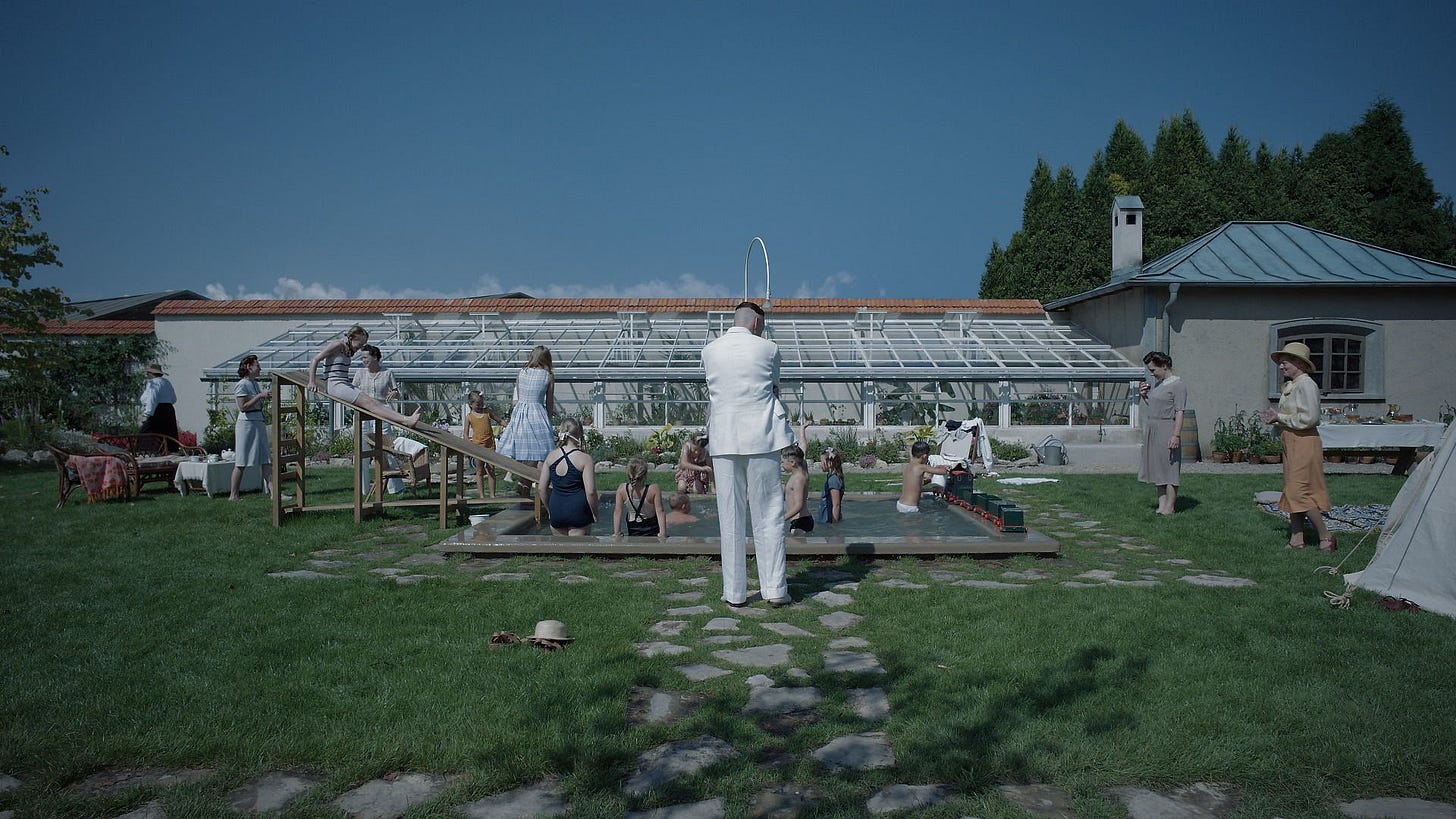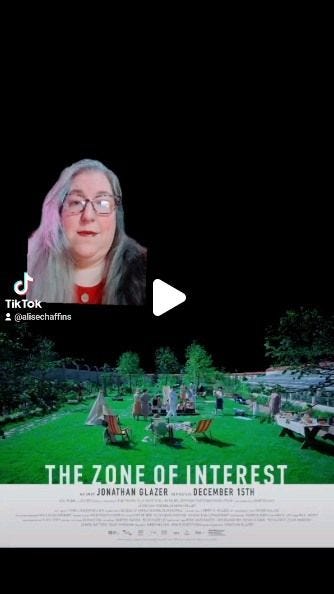When the Nazis were creating the language they used to talk about the atrocities they were committing, it was cold. They spoke of the “final solution” rather than the extermination of Jewish people. They called the camps “zones of interest.” Anything to distance themselves from the genocide they were carrying out. Most movies about the Holocaust present Nazis as cartoonishly evil or give us one sympathetic character. Which isn't to say that there wasn't evil happening or that there weren't people who were conflicted, but in most films, people can border on caricatures rather than real people. In Jonathan Glazer's Oscar-nominated The Zone of Interest, we see Nazis disconnected from the evil they are perpetrating, something far more akin to the reality of how the Holocaust happened.
Rudolf Höss (Christian Friedel), the commandant at Auschwitz, and his wife Hedwig (Sandra Hüller) live in a palatial villa with their children and their dog. They have conversations about visiting a spa in Italy that Hedwig loves. They have to take care of Hedwig’s mother coming in for a visit. They have to deal with Rudolf’s upcoming transfer and how they will handle that. Just regular family events going on between trips to the concentration camp where thousands of Jews were systematically murdered.
Off-screen, a second movie is happening, and we can only hear it taking place. In lieu of an ongoing score (though the brief snippets of score that we do get from Mica Levi are haunting and powerful), the soundtrack of this film is the hum of the crematoriums, the coming and going of trains, sporadic gunshots, and the screams of the prisoners.
The story that is shown is largely unremarkable, though there are moments when I really wish that Sandra Huller had received a best supporting actress nomination as well for her role in this, as she delivers some of the most chilling lines in the film with absolute perfection. But despite the almost boring primary movie, we are never far removed from the horrors happening off-screen. And it highlights just how normal everything was for the people involved in one of the largest genocides in history. “The banality of evil” is referenced regularly when people discuss this film, but honestly, I have never seen that depicted as perfectly as in this movie.
This movie isn't sad in the way that Schindler's List or The Boy in the Striped Pajamas are sad. There is definitely a place for films like that, giving us an inside look at what happened. Instead, this movie is a grave reminder that it was ordinary people who carried out these atrocities. It is a stark reminder that the villain isn’t always easy to spot when you’re in the middle of a crisis and that it often takes distance to recognize what is happening.
That said, I did cry when it was over. The weight of what I experienced overwhelmed me to the point of tears. But there was something else that upset me as well. Some of my discomfort was because the background sound became almost an ambient sound. In less than two hours, the viewer can become dulled to the horror happening off-screen. It’s not to say that it doesn’t affect you because it’s hard to ignore screaming happening off-screen. But sometimes, that sound does blend into the action on screen, allowing you to almost block it out. The final scene brings everything into sharp focus, but while it's not easy to forget what's happening, it does become simply part of the background noise.
This is a heavy movie in a way that many other Holocaust films I've watched have not been. It challenged me to think about the way that I respond, or even more importantly, don't respond to atrocities happening in our world today. Yes, we all have lives to live, but we must guard against allowing that to numb us to the suffering of others, whether it be in Gaza, ongoing antisemitism, or in the homeless encampment in our own neighborhoods. We must choose to feel.








I didn't even know yet what this one was about. Great review.
Watched this last night with the family. This movie was so well done, and your write-up is excellent.
What struck me as I watched was how I found myself getting caught up in the politics of Rudolf's job situation and in the nuanced interactions of their marriage. I was getting sucked in to the "normalness" of their lives and into the story right in front of me. It took effort to stay connected and engaged with the off screen horrors. Like you, it challenged me to think about the way that I respond (or not) to atrocities happening in our world today.